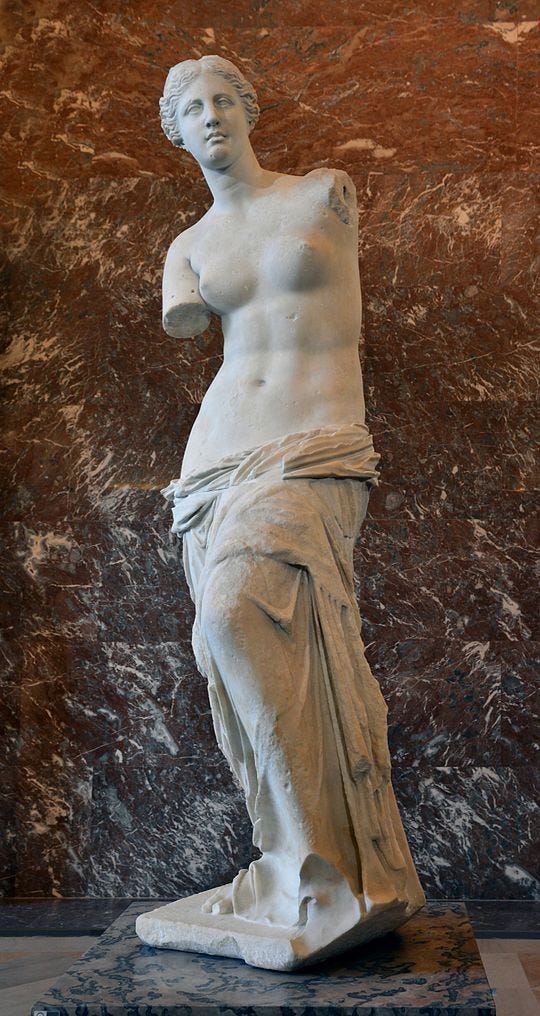(Image: Wikipedia)
If we described the Venus de Milo as an old woman who is missing both arms, has age spots and flaking skin, would she attract our attention? Would we seek her out? Millions travel to see her every year, sometimes crossing the world to view her at the Louvre. We consider the Venus de Milo a masterpiece because of her beauty and antiquity even though she is broken. Her brokenness also lends an air of mystery that leads us to want to engage with her. So we travel, we stand in front of her and silently marvel.
Contrast the reaction to the Venus with how society views the flesh and blood “broken.” Pro Infirmis, a Swiss organization for disabled individuals, created a video titled “Because Who is Perfect? Get Closer.” Mannequins, modeled after the disabled, were placed in storefronts in one of the world’s most glamorous shopping districts in Zurich. They were stooped, had crooked spines, and were missing limbs.
The project sought to challenge society’s view of what is beautiful and to showcase the disabled; the often invisible among us. It’s a double paradox, that when we do “see” the disabled, we both stare and turn away from them. We stare because we’re curious. But why do we look away? Because the world is broken and we keep expecting it not to be; because disability is a painful reminder of suffering; because it mirrors and reminds us of our own brokenness?
There are different responses to the displays in the video. The models are clearly pleased with their mannequins. They caress them, hug them, and one model gives his mannequin his prosthetic leg and shoe. They contemplate how the public will respond. One model says, “the people passing will be really irritated.” The public reacts diversely. Some glance and look away. Some look pensive, perhaps realigning their own ideas of beauty. One tries to shape her posture into the same position as one of the mannequins. If a spontaneous gesture of empathy, this may have been the best response, a simple attempt to experience life as one of the models.
Walt Whitman writes:
Agonies are one of my changes of garments, I do not ask the wounded person how he feels, I myself become the wounded person,
This is the flame Pro Infirmis hopes to light. Not to see the invisible with pity, compassion or even just empathy, but to extend to them the welcome all are due as bearers of the image of God. The video hopes to do what Ralph Ellison attempted in The Invisible Man, to bring song from where we don’t expect it, to “make music out of the invisible.”
We marvel at the Venus de Milo. How do we marvel in the face of human brokenness? How do we get closer?





You wear yours very well, with love and dignity